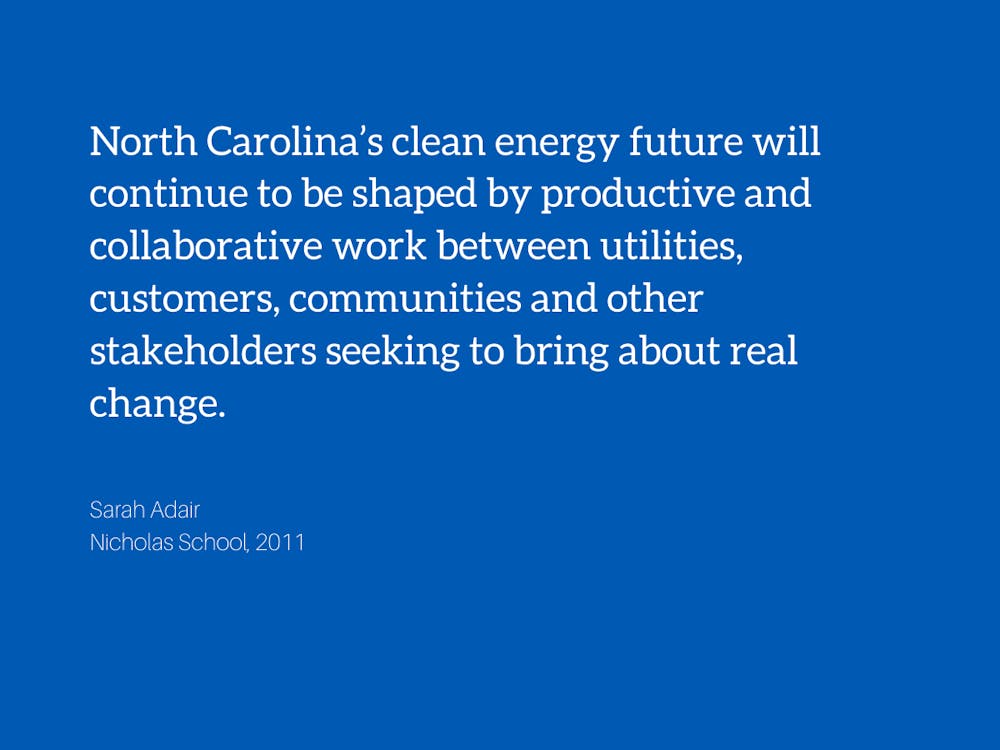Sarah Adair serves as the Public Policy Director for Duke Energy.
In response to the December 3 guest column zeroing in on Duke Energy and North Carolina’s energy future, I want to share another perspective on how Duke University students can make a difference.
As an alumna of both Duke University’s Nicholas School of the Environment and Nicholas Institute for Environmental Policy Solutions—as well as a current Duke Energy employee—I choose to work in this sector because I see complex challenges and incredible opportunities to create solutions as we collectively work toward securing a clean energy future.
Duke Energy and other electric utility companies have a pivotal role to play in driving, enabling and implementing this transformation. At the same time, customers and communities rely on their utility to provide reliable, affordable energy around the clock. We must build the clean-energy-plane while we fly it.
In September, Duke Energy announced an updated climate strategy with a goal to achieve net-zero carbon emissions from electric generation by 2050, with an interim goal of at least 50% by 2030. This goal applies to the company’s six regulated electric utilities in North Carolina and South Carolina, Florida, Ohio, Kentucky, and Indiana and it builds on the 31% reduction company-wide that Duke Energy has already accomplished since 2005. The company’s net-zero goal represents one of the most significant commitments to reducing carbon dioxide emissions in the U.S. power sector.
I’m proud to have been part of the team that developed that goal. And I am motivated every day by the challenges ahead to achieve it.
Achieving net-zero emissions by mid-century is going to require unprecedented innovation and collaboration across sectors and organizations to develop new technologies and policies to transform the way we produce and use energy throughout our economy.
This effort will call for private and public sector leaders with interdisciplinary problem-solving and critical-thinking skills—the very attributes that set Duke University students apart. Students at the University have countless opportunities to interface with our most pressing energy, environmental, social, economic and policy challenges and to cultivate an ability to reach across aisles and sectors to craft solutions.
North Carolina’s clean energy future will continue to be shaped by productive and collaborative work between utilities, customers, communities and other stakeholders seeking to bring about real change. I am deeply fulfilled to be part of this transition and look forward to working alongside future Duke alumni who share this commitment.
Sarah Adair (Nicholas School of the Environment, MEM ‘11) is the Public Policy Director for Duke Energy.
Get The Chronicle straight to your inbox
Sign up for our weekly newsletter. Cancel at any time.

